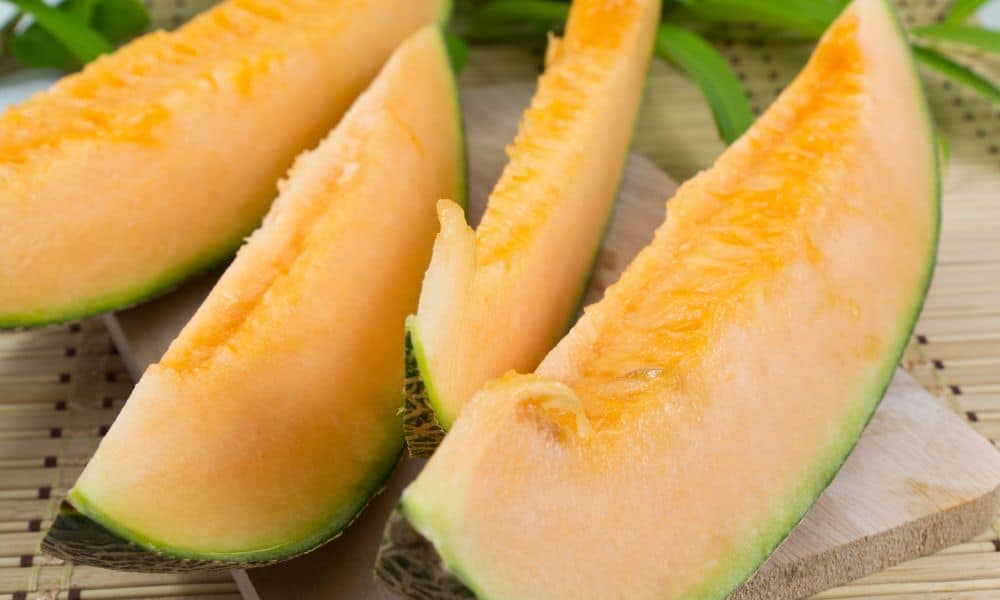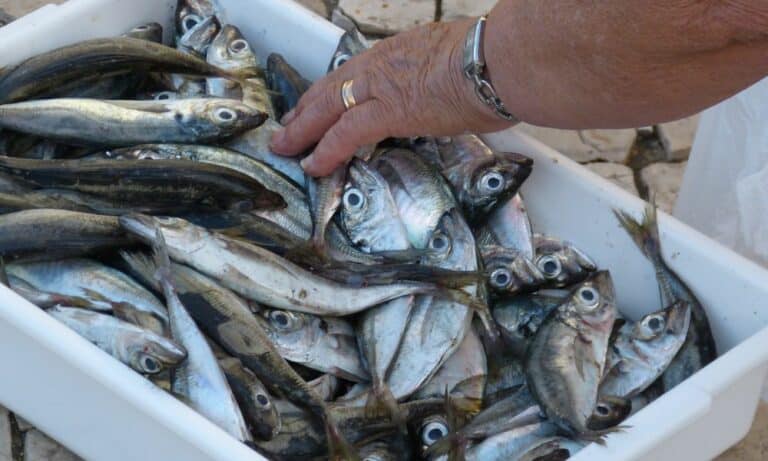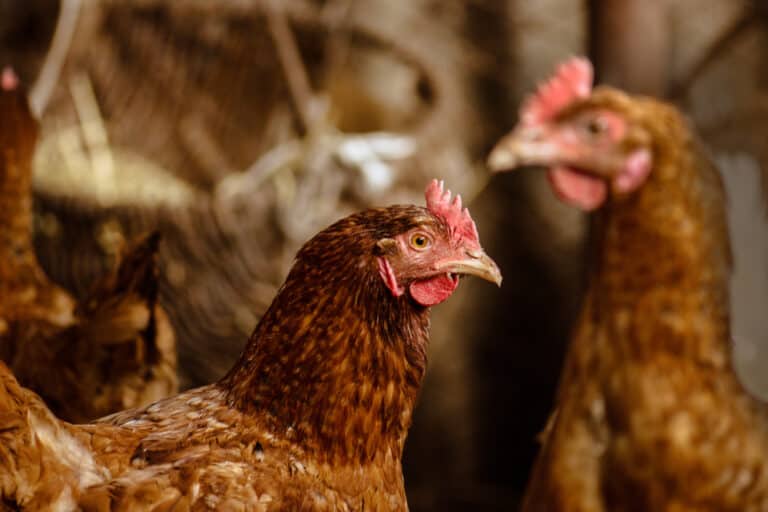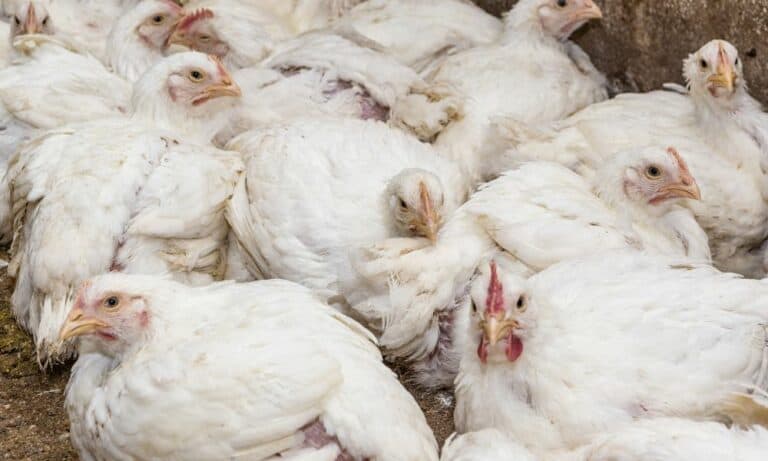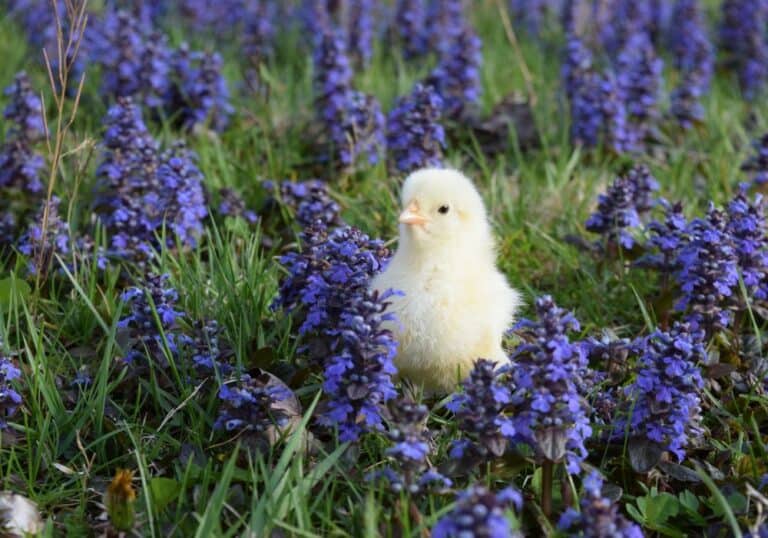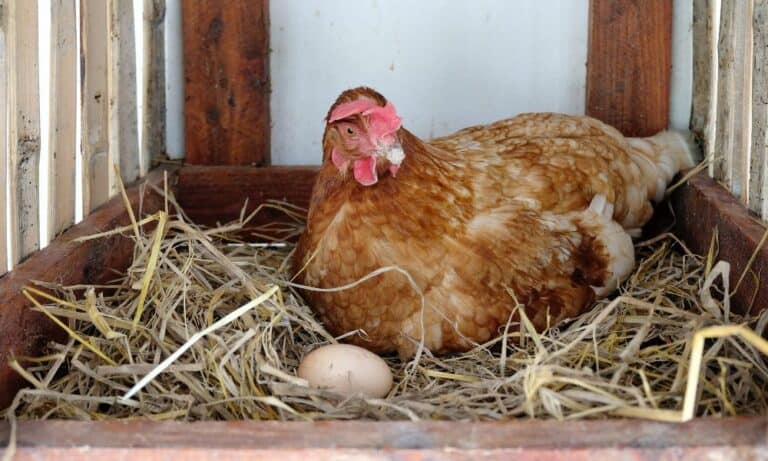Many chicken owners like combining different ingredients to enrich their flock’s diet. If you are one of them, you probably experiment with different flavors in an attempt to determine which foods and treats your poultry likes best.
Considering that some of the unusual foods are incredibly nutritious, the question of their introduction into the chicken diet often arises. So, you are maybe curious about whether can chickens eat cantaloupe and which amounts are beneficial for their health. Let’s check.
Nutrition content of 3.50 ounces (100 g) of raw cantaloupe |
|
| Nutrients | Amount |
| Calories | 34 Kcal |
| Protein | 0.84 g |
| Fats | 0.19 g |
| Carbs | 8.16 g |
| Sugar | 7.86 g |
| Fiber | 0.9 g |
| Water | 90.2 g |
*by USDA
What Is Cantaloupe?
Cantaloupe (Persian melon, Musk melon, Mush melon, Rock melon) is affordable and available fruit from the Cucurbitaceae family, like watermelons, pumpkins, honeydew melons, squash, and cucumbers. It is refreshing and delicious, making it an excellent treat during the summer.
It has a recognizable rind with a netted white and green pattern and orange flesh. You can differentiate three categories, based on the place of growing, including:
European (true) cantaloupe – This fruit has a peel with a netted pattern but sometimes comes without it. Its smell and flavor provide a unique musky feel.
Asian cantaloupe – This type has a pale, light orange interior, while the exterior pattern is less emphasized. It is crispy and provides softer flavors than others.
Charentais cantaloupe – Many cantaloupe fans consider this type the tastiest. It is grapefruit-sized, sweet, and with a bright orange interior.
Can Chickens Eat Cantaloupe?
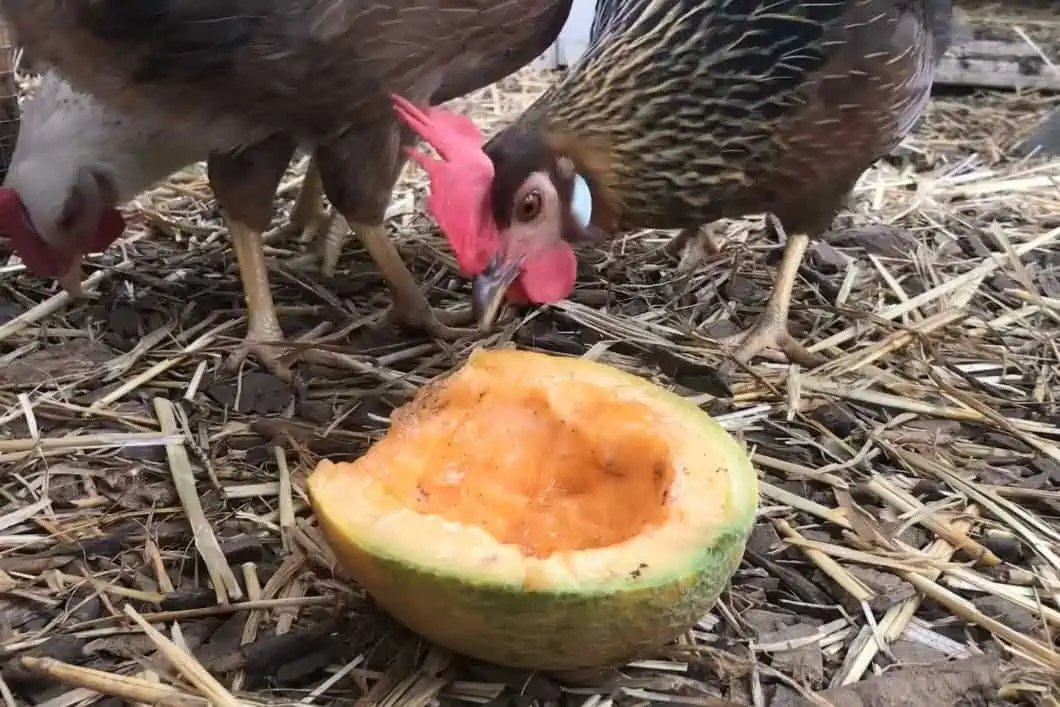
Chickens enjoy eating cantaloupes as a fresh treat to prevent possible dehydration, particularly during the summer. Besides being a favorite fruit for poultry, they are entirely safe, healthy, and highly nutritious.
Since providing various food for your chickens is crucial, offering them cantaloupes is an excellent idea. However, it should be only in moderate amounts. Chickens like consuming all parts, but take care to serve it in smaller chunks, never the whole fruit.
Cantaloupe flesh
The flesh is the most delicious and nutritious cantaloupe part, and your flock will adore it whenever offered. This juicy fruit benefits chickens during hot weather thanks to its high-water content. Besides, it provides most of the necessary nutrients necessary for their well-being.
Cantaloupe rind
The rind is not particularly tasty but is safe for fowl to consume. You can notice that your chickens nibble it in small quantities and typically avoid the rough outer rind since it is a bit too hard. However, they will consume this part when there is nothing more attractive to snack on.
Never feed your flock with a dirty rind or those treated with chemicals. Some owners mix dried seeds and rind with yogurt and offer them to chickens as a healthy homemade remedy for digestion problems. Still, there is no proof that this combination helps in any treatment besides being an attractive snack.
Cantaloupe seeds
Cantaloupe seeds are delicious and safe treats for fowl to consume without adverse effects. Be aware that some chickens won’t be delighted with these seeds since they are a bit tough and are not the tastiest food ever. Besides offering whole seeds, you can also dry and grind them before feeding.
On the other hand, cantaloupe seeds are the right size, so chickens can consume them without fear of hurting themselves. They are non-toxic food rich in protein, essential fatty acids, folate, and fiber.
Cantaloupe leaves and vines
Considering their low nutritional value, you can expect chickens to unlikely peck at cantaloupe leaves and vines. However, they can prevent boredom by nibbling this greenery. Since the plant is non-toxic, you can let your flock get fun but never offer those treated with herbicides or pesticides.
Can chicks eat cantaloupes?
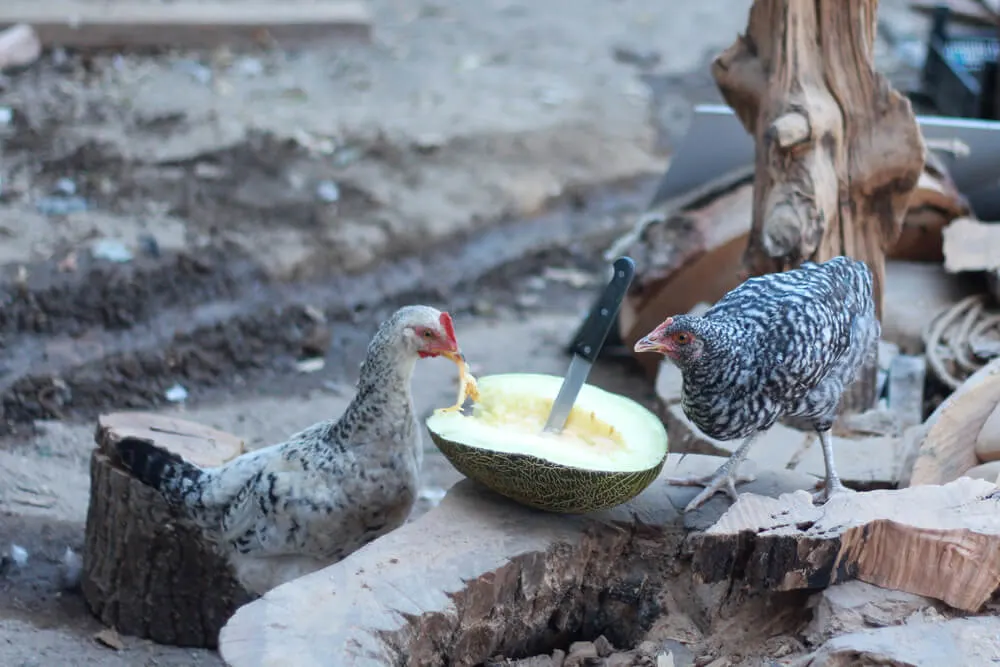
Cantaloupe flesh is a superfood for chicks, thanks to its water content. This fruit helps with hydration, but you should never overdo it since their developing bodies require more consistent nutrition from other sources.
Cut this fruit into 0.50 inches (1.27 cm) long pieces or mash the flesh before feeding to make it easier to digest. Be careful with offering cantaloupe seeds to chicks since they may struggle to ingest them whole.
Ways to Feed Your Chickens with Cantaloupe
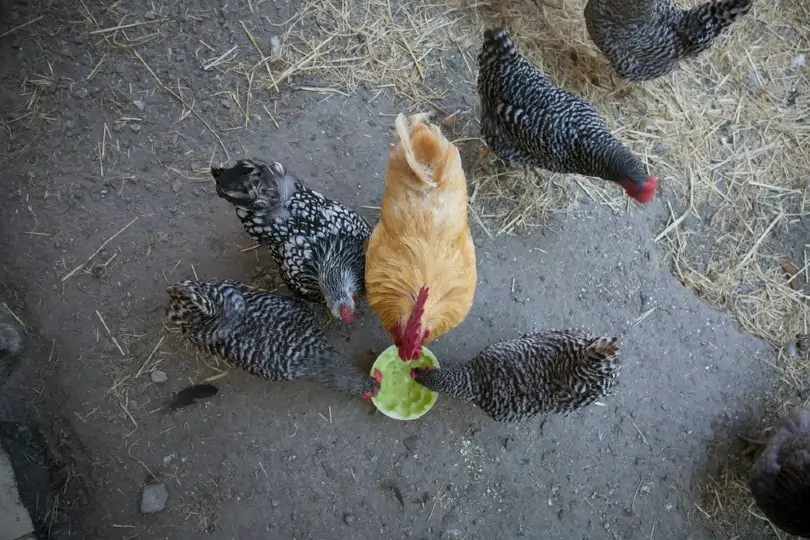
It would help to have a few things on your mind when feeding cantaloupe to your flock. Offer a small amount because of the high sugar content and reduce other sugary during the cantaloupe season. Offer it moderately two to three times weekly, never more than 5% to 10% of daily meals.
Remember that cantaloupes grown on commercial farms are often exposed to chemicals. Therefore, you should wash them to remove pesticide residues before feeding. As always, the best option is to find organic varieties.
Cut it into pieces
Never leave a whole cantaloupe on the ground and let chickens consume it that way. A better option is appropriately preparing the fruit to make swallowing it easier for your poultry. Cut it into small pieces and toss a few to the chickens to check their reaction before giving them more.
If you notice that at least one chicken is not well after eating this fruit, exclude it from feeding for a few days before trying again. If the flock reacts positively to the new food, put cubes into a shallow bowl and let chickens consume them as desired.
Cantaloupe discs
Cutting cantaloupe and stringing the reels on the string is an excellent way to provide chickens with this treat throughout the day. It will keep fruit from getting dirt and offer fowl plenty of fun. You can also combine it with apple, pineapple, and watermelon discs, making the treat even better.
Fruit salad
Combining cantaloupe with other fruit can be a delicious and refreshing option for your flock. Mix cubes with apple pieces, cherries, or blueberries and make a yummy fruit salad. Another option is adding grains and leafy greens to get a perfect meal.
Cantaloupe seeds with yogurt
Add dried and ground cantaloupe seeds to unsweetened yogurt to make a delicious treat for your flock. You can sometimes add other fruits and veggies to make it even better.
Frozen cubes
Freeze cantaloupe flesh cubes and use them to make a refreshing smoothie. Adding other fruit or veggies is an excellent way to make a healthy combination and keep your chickens hydrated and satisfied. Finally, you can toss frozen cantaloupe chunks on the ground and let fowl enjoy the icy treat.
Cantaloupe Nutritional Value
The USDA considers cantaloupes nutritionally dense fruit rich in nutrients that balance the high carbs content. It benefits chickens thanks to a high percentage of water and electrolytes.
One cup of cantaloupe pieces contains 144 calories without unnecessary fats and cholesterol. This fruit is packed with antioxidants, vitamin C, vitamin A, and phytonutrients. The best of all is that the blood sugar level remains steady after ingestion since cantaloupe digests gradually.
Content of vitamins and minerals in 3.50 ounces (100 g) of raw cantaloupe |
|
| Nutrients | Amount |
| Vitamin A | 169 µg |
| Vitamin E | 0.5 mg |
| Vitamin C | 36.7 mg |
| Thiamin | 0.041 mg |
| Riboflavin | 0.019 mg |
| Pantothenic acid | 0.105 mg |
| Pyridoxine | 0.072 mg |
| Folates | 21 µg |
| Vitamin K | 2.5 µg |
| a-carotene | 16 µg |
| b-carotene | 2020 µg |
| Lutein and zeaxanthin | 26 µg |
| Calcium | 9 mg |
| Magnesium | 12.5 mg |
| Potassium | 268 mg |
| Phosphorus | 14 mg |
| Sodium | 15 mg |
| Manganese | 0.04 mg |
| Copper | 0.04 mg |
| Iron | 0.20 mg |
| Zinc | 0.20 mg |
| Selenium | 0.4 µg |
*by USDA
Besides the high water content that makes cantaloupe an excellent treat for summer, this fruit also contains fiber. It is necessary for digestive tract development in chicks and to keep healthy bowel movements in adults.
Cantaloupes are essential for laying hens thanks to 9 mg of calcium in 3.50 ounces (100 g) of raw fruit. This treat helps them produce eggs with a solid shell and allows strong bone development in chicks.
This fruit is also crucial for fighting infections thanks to its high content of antioxidants, essential vitamins, and minerals. b-carotene keeps chickens’ feathers, skin, beaks, and combs colored and plays a role in determining the eggshell shade.
Risks of Feeding Chickens with Cantaloupe
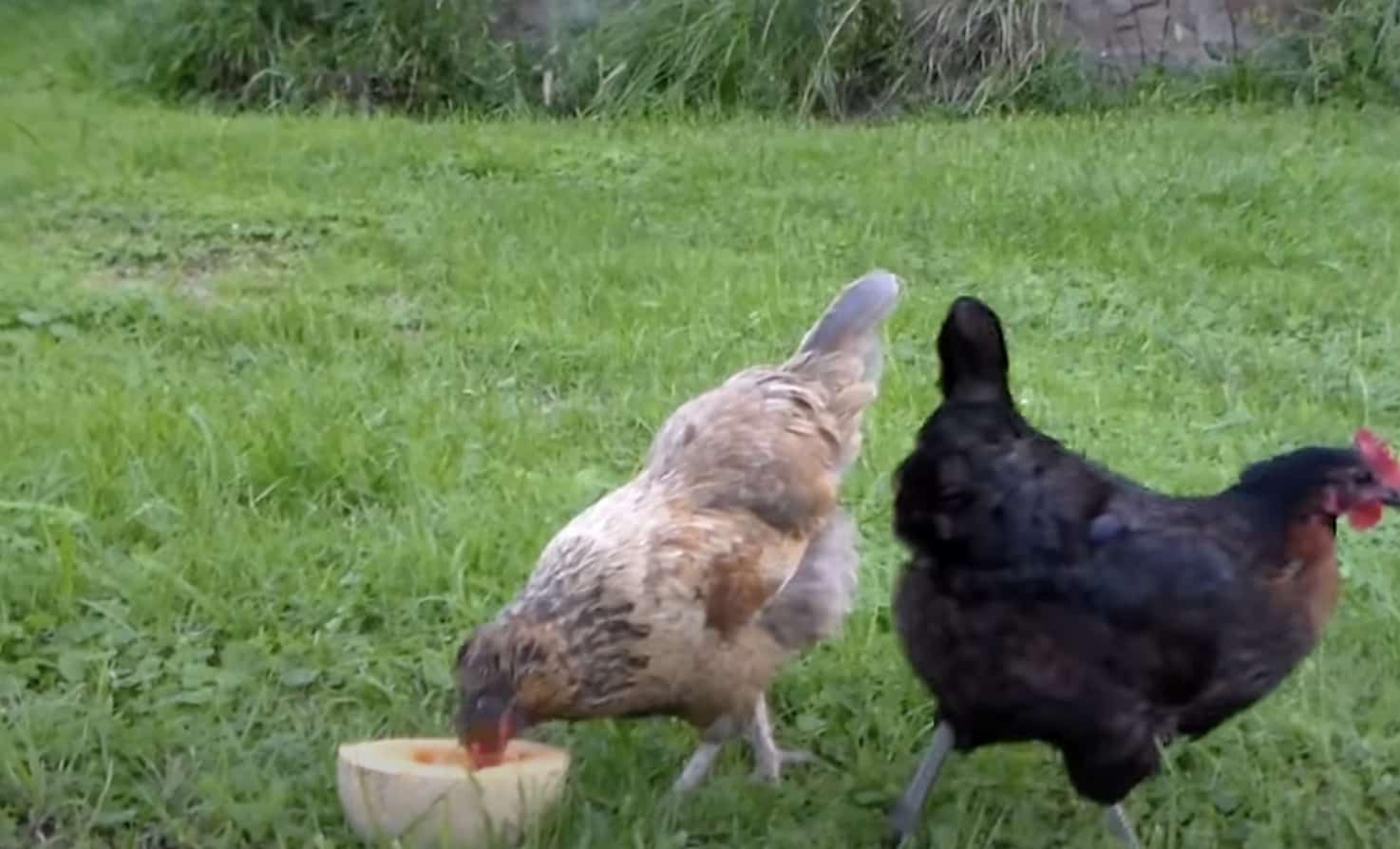
Even though cantaloupes are safe to consume, be careful with stale and moldy fruit. Besides, pay attention to quantity. If you toss too much at once, chickens will eat seeds and flesh first, while rinds can stay long on the ground.
As a result, leftovers may rot over time and endanger your flock’s health after consumption. Besides, the remaining pieces often attract unwanted rodents.
Remember that cantaloupes are a treat, and you shouldn’t offer them as an everyday meal. Overfeeding may lead to the lack of some essential nutrients from feed that chickens often consume less when more tasty treats are available.
As mentioned, cantaloupes are often treated with chemicals that may jeopardize your fowl’s health. Therefore, always wash the rind before serving.
Summary
Chickens like cantaloupe, and you can offer it in moderate amounts as a treat. This fruit is nutritious and beneficial for hydration, growth, feather development, and proper bone formation. Even though it can’t be a part of the everyday diet, you can occasionally offer your flock flesh, foliage, seeds, vine, and rind.

